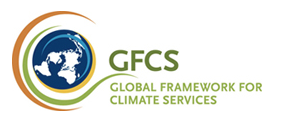The first session of the Intergovernmental Board on Climate Services, organized by the World Meteorological Organization (WMO), agreed on an operational roadmap for the Global Framework for Climate Services (GFCS), a country-driven initiative to provide accurate and accessible climate services to users globally, with an initial focus on the agriculture, water, health and disaster management communities.
 10 July 2013: The first session of the Intergovernmental Board on Climate Services, organized by the World Meteorological Organization (WMO), agreed on an operational roadmap for the Global Framework for Climate Services (GFCS), a country-driven initiative to provide accurate and accessible climate services to users globally, with an initial focus on the agriculture, water, health and disaster management communities.
10 July 2013: The first session of the Intergovernmental Board on Climate Services, organized by the World Meteorological Organization (WMO), agreed on an operational roadmap for the Global Framework for Climate Services (GFCS), a country-driven initiative to provide accurate and accessible climate services to users globally, with an initial focus on the agriculture, water, health and disaster management communities.
At the session, which convened from 1-5 July 2013, in Geneva, Switzerland, participants adopted decisions aimed to accelerate the provision of user-orientated climate services, such as seasonal outlooks, drought and flood advisories. “Climate services are increasingly necessary because of the rapidly growing climatic impacts,” said Board Chair Anton Eliassen, Norwegian Meteorological Institute Director-General.
According to WMO, since the GFCS was established in 2011, many governments have made progress in developing national climate service action plans, and many UN agencies and international organizations are factoring climate services into sectoral and development work. To date, GFCS contributions and pledges total around US$31.5 million. However, WMO stresses that significant challenges remain, and approximately 70 countries, including most least developed countries (LDCs) and small island developing States (SIDS), have inadequate or no climate services.
WMO and partners: launched pilot projects in Burkina Faso, Niger, Mali and Chad to kick-start climate services at the national level; and convened workshops for the Caribbean, LDCs in Asia and Southwest Pacific SIDS to support regional-level implementation.
The Board took decisions to ensure: coordination at the global, regional to the national levels; engagement of all stakeholders; and strengthened interactions with the UN system and World Bank. It also agreed to establish: a Management Committee to advise on key tasks until the Board’s next meeting in November 2014; and a Partner Advisory Committee to ensure active participation of UN agencies, other development partners, and relevant international and non-governmental organizations (NGOs).
The Board also discussed: the GFCS implementation plan, including progress made in the areas of food security, water management, disaster risk reduction (DRR) and health; and a platform to bring together climate service providers and users to ensure scientific information and predictions are understandable and helpful to users. [GFCS Website] [WMO Press Release]